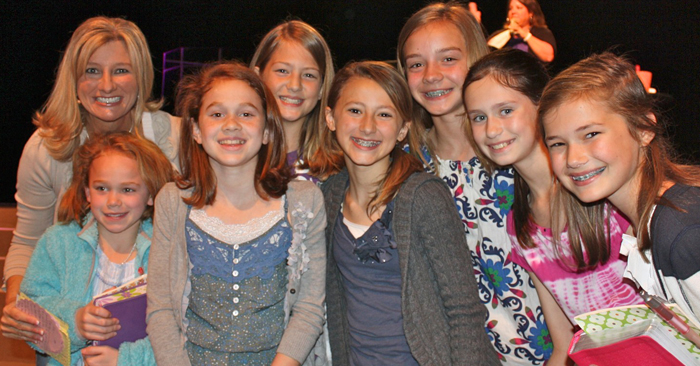Preteen Small Groups

Written by Rob Quinn
When I was first asked to serve in Children’s Ministry it was to help with our 5th grade boys. We didn’t have a specific preteen ministry at the time, but many of our 5th grade boys were not engaging and hated coming to church.
I was a full-time firefighter at the time, and knew nothing about teaching and even less about preteens.
My first Sunday spent serving was very educational for me. The boys looked at me like I was a glowing alien and never said a word. I left that day thinking, “it is only for the summer and then I have done my part.”
Something happened during that summer though. The woman who was currently leading the 5th graders asked if we could break the boys and girls up after the main teaching section.
I didn’t know it at the time, but this was the best thing that could have ever happened and it was the first time for small groups with our preteens.
The boys and I may not have had great deep conversations, but we talked about their life and what they were thinking about. When they moved onto 6th grade I found myself missing them.
Over the years many things have changed in my church, but after that first time of breaking up into small groups, I knew it was important from here on out.
We have learned a lot about small groups, and what works and what doesn’t for us. I know there are a lot of different ways to run a small group, but the one thing I am always reading about is how important they are.
So what do small groups look like in preteen ministry?
That is a question each of us could answer differently.
As a preteen leader you need to understand your audience better then any other.
Preteens are becoming more relationally wired, which means relationships become a high priority.
These can be relationships with friends and family; teachers and coaches; and small group leaders as well.
However, relationships can’t be nurtured in large group setting. Preteens are still at an awkward stage so they won’t open up in front of large groups.
Creating small groups begins with finding small group leaders. The first thing to do is recruit small group leaders and make sure you are setting them up for success.
Let them know what you expect and what exactly they will be responsible for. Give them the small group curriculum to look over and setup guidelines to give them the freedom to change it depending on their group.
All groups of kids are different, so give your leaders the permission to make modifications if necessary for their group to work.
The best small group leaders know how to take the questions and lesson and let the preteens run with it–guiding them rather then talking at them.
Part of our job is showing our leaders how to do this. I recently read Lead Small by Reggie Joiner and Tom Shefchunas, and I will be recommending it to our small group leaders.
The book breaks down every aspect of what a small group leader does. As I read it, it helped me to better understand my role when leading a small group.
Building relationships with preteens in my small group is high on the priority list.
I make it a point to find out what’s going on their lives – what’s good, what’s bad and everything in between.
We laugh, pray, and sometimes talk about random things together.
The next thing you will want to do is design your small groups in the best way that works for your ministry and your preteens.
There are many suggestions out there, but I am only going to give you what works for us.
We have seen that boys do not open up in front of girls, and girls only open up a little in front of boys. So, we have made our groups gender specific.
Determining the size of your small groups will be dependent on your resources. How many leaders you have andavailable space will factor into your group sizes.
Ideally, we would like our groups tobe no more than 10 preteens to every leader.Does this always happen?No it doesn’t.Some days we have a larger preteen to leader ratio.
Don’t be afraid of changing things up until you figure out works for you and your preteens.
There isn’t a secret recipe to doing small groups. Every preteen, leader and church is different.
If you are currently not doing small groups, I recommend you give it a shot. If you are doing small groups and things seem like they are not working, shake things up and maybe even get a little crazy… preteens love crazy!
If you aren’t afraid to change for your preteens, you will be amazed at how well they respond.
Like this blog post? You’ll love this one also written by Rob – Are Preteens Ready for PG-13?
 Rob Quinn serves as the Preteen Ministry Coordinator at Community Bible Church in Brighton, MI. He has been involved with preteen ministry for almost 8 years now. Rob is married to an amazing woman Jodi, who just so happens to be the Children’s Ministry Director at his church. They have one beautiful daughter Sydni, and an 8-pound attack dog named Lilly.
Rob Quinn serves as the Preteen Ministry Coordinator at Community Bible Church in Brighton, MI. He has been involved with preteen ministry for almost 8 years now. Rob is married to an amazing woman Jodi, who just so happens to be the Children’s Ministry Director at his church. They have one beautiful daughter Sydni, and an 8-pound attack dog named Lilly.
